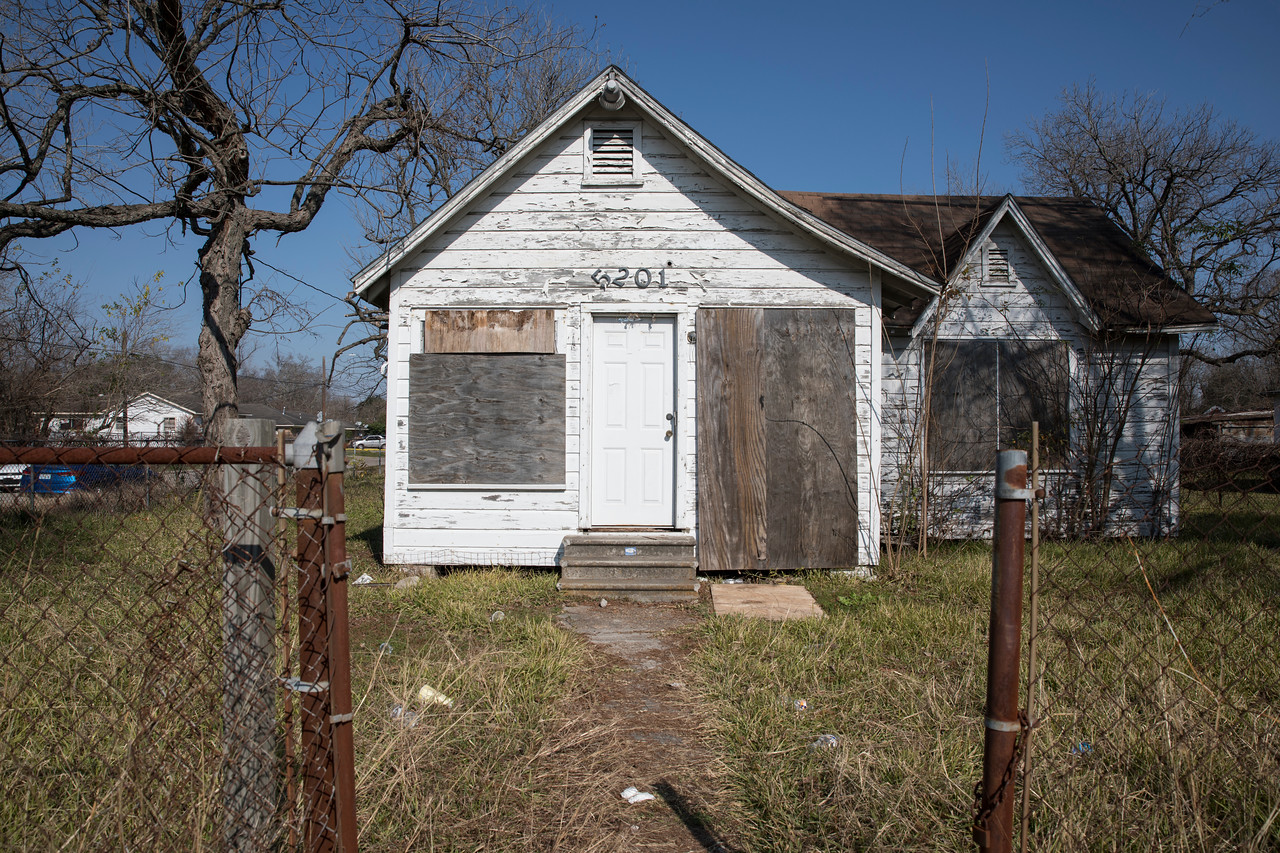
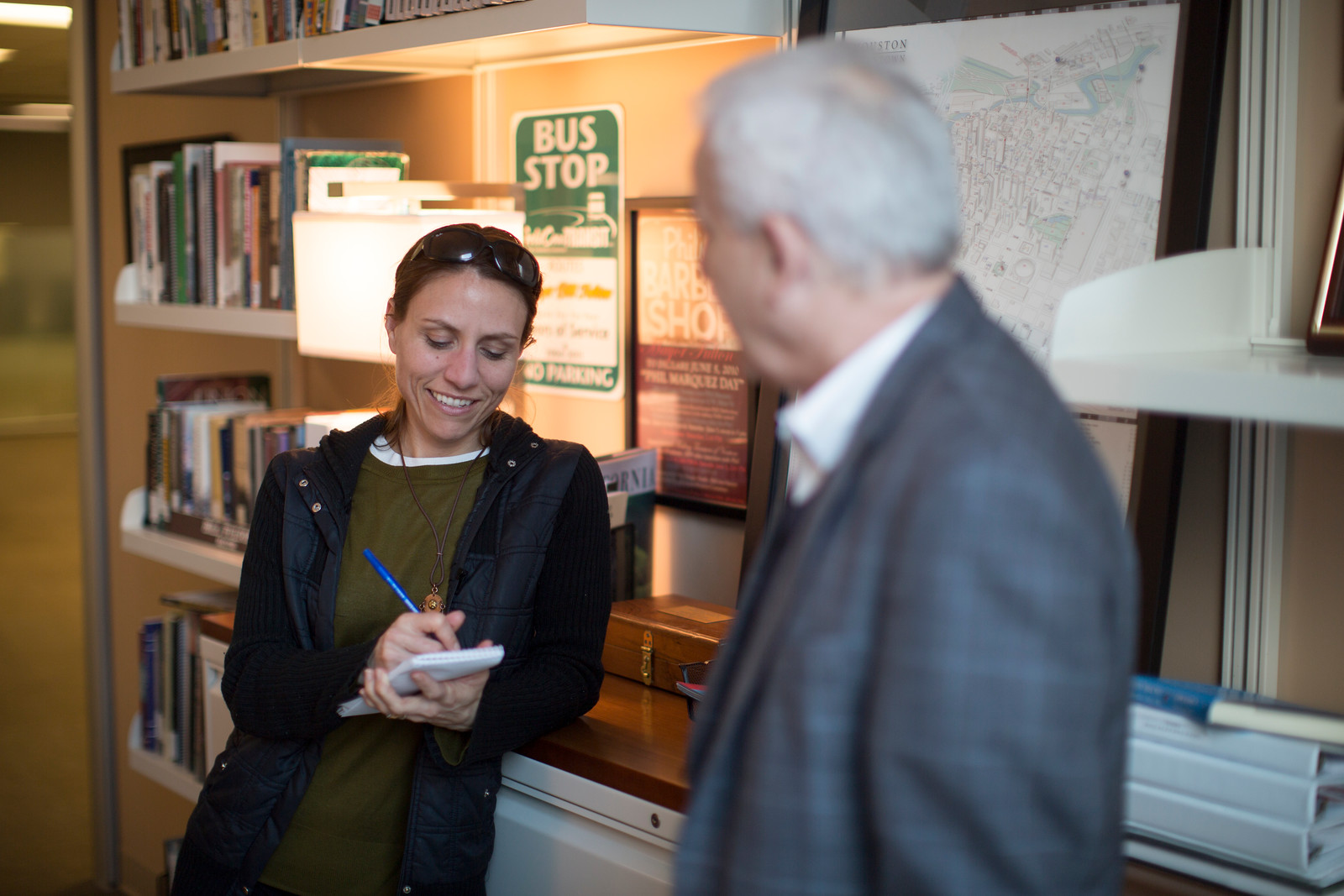

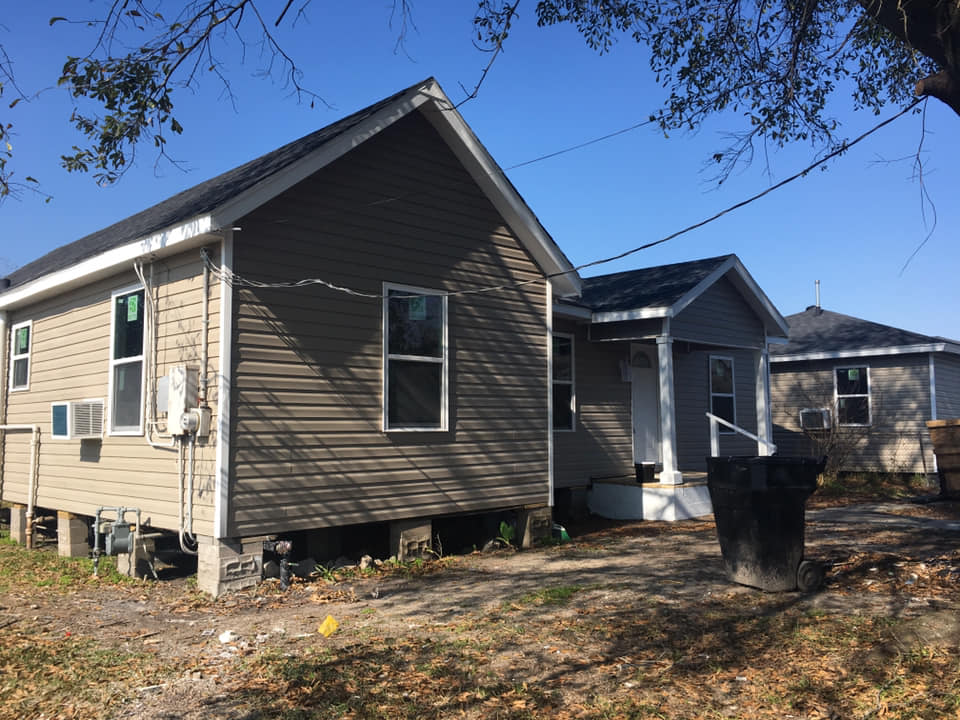
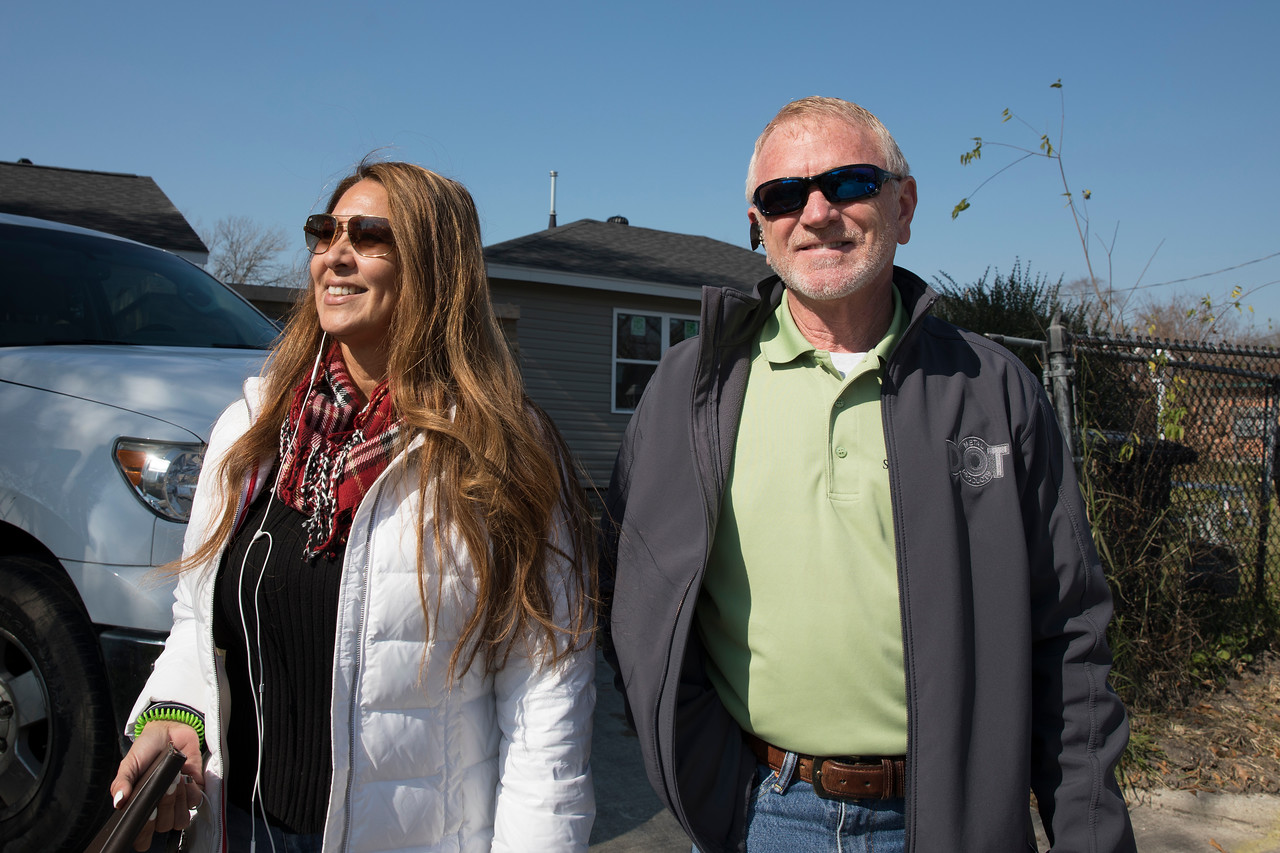

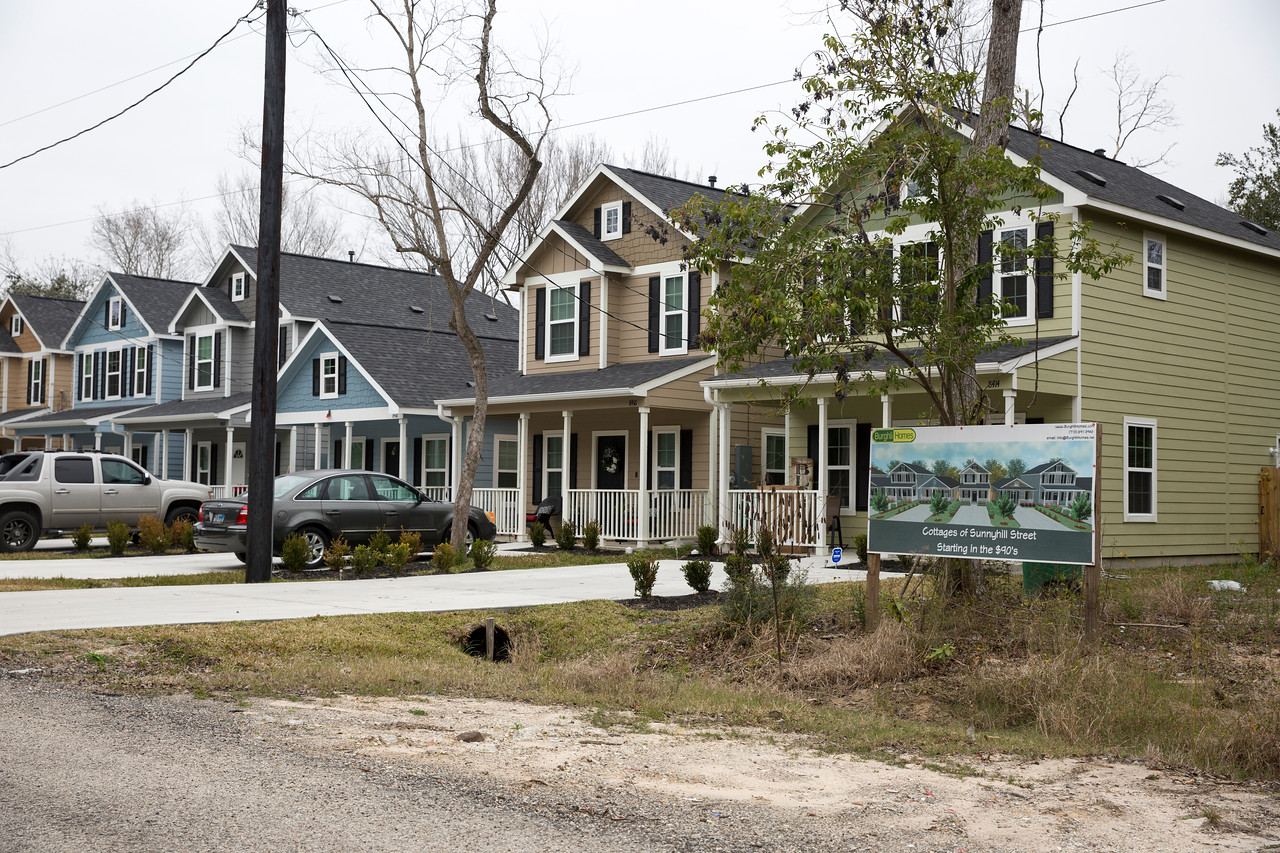
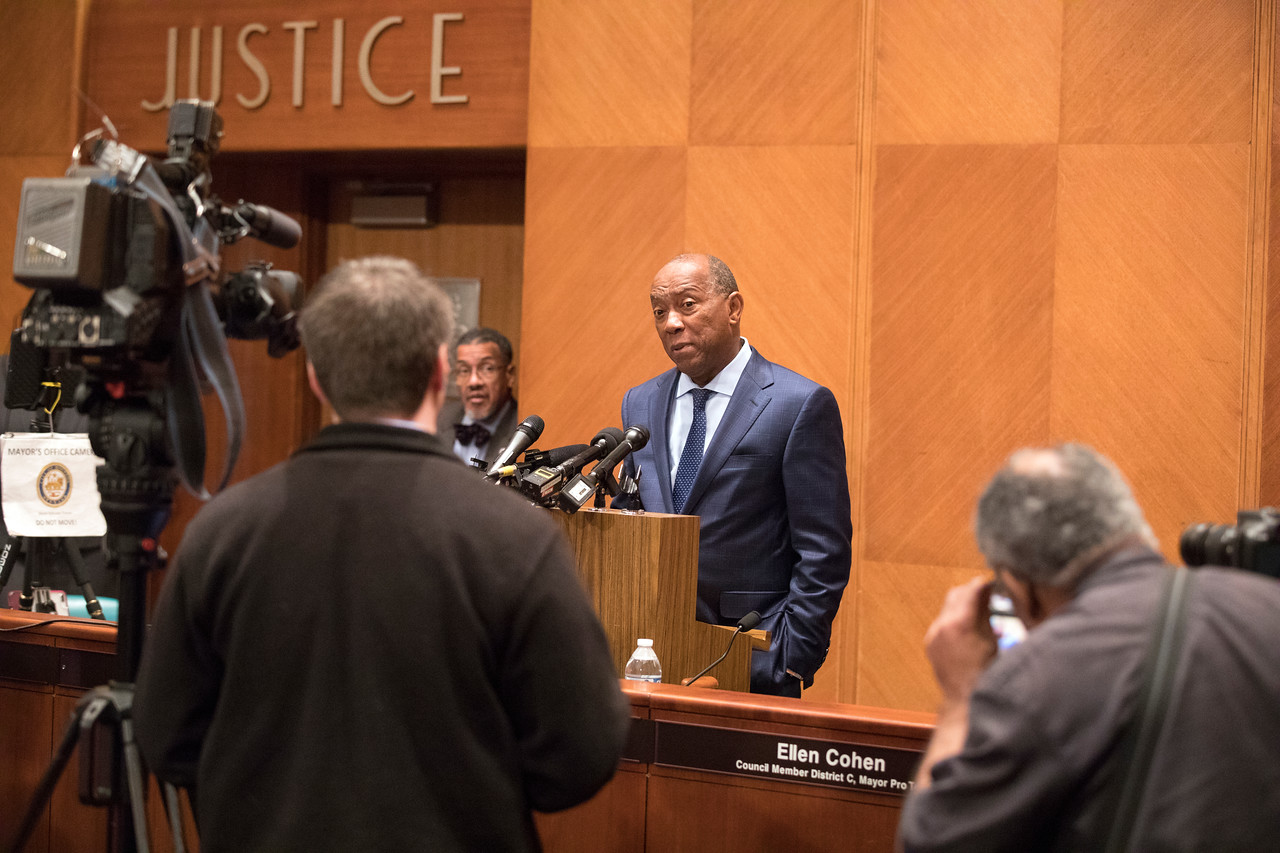
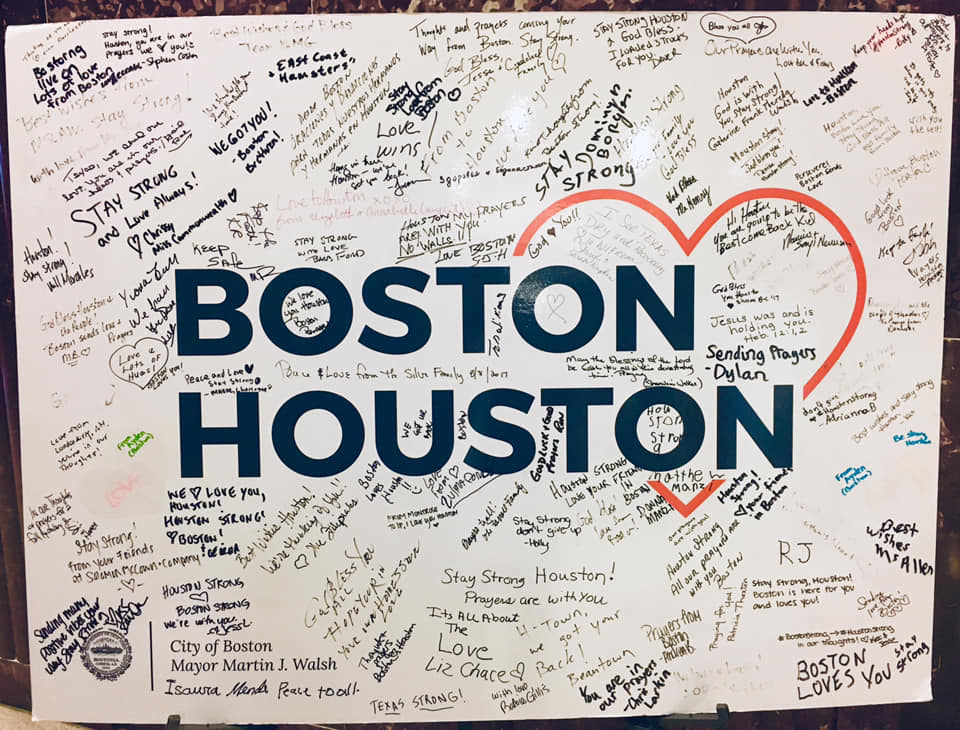
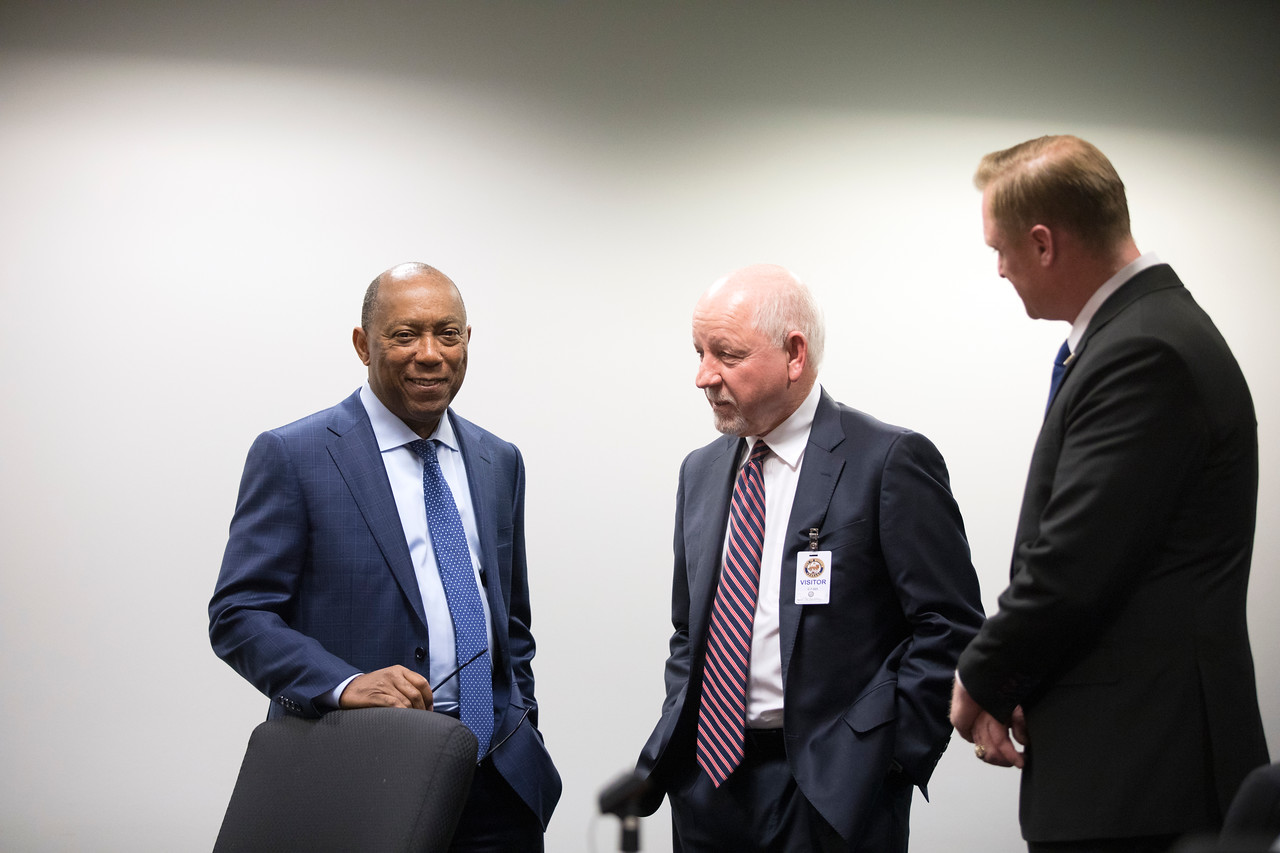
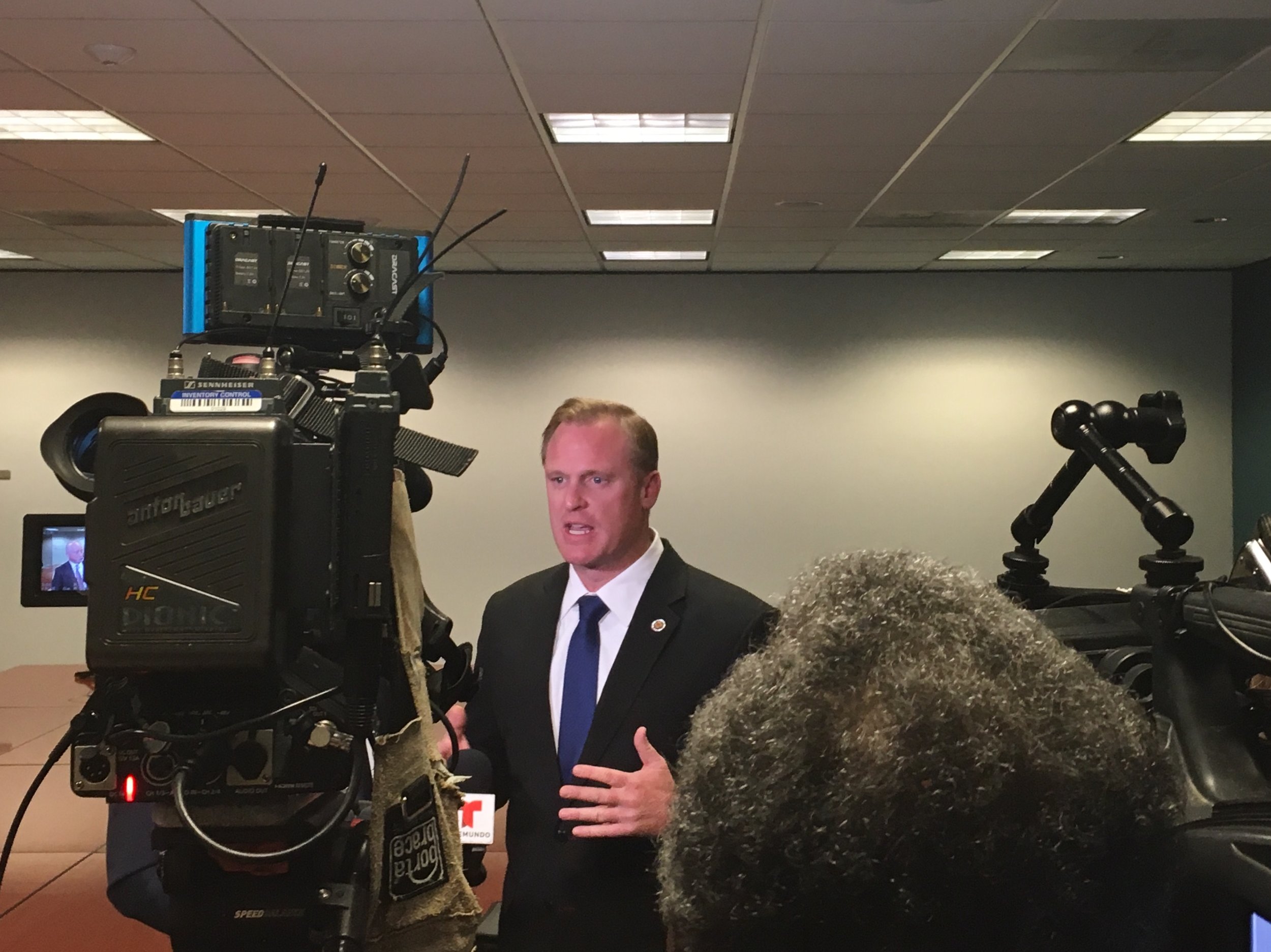
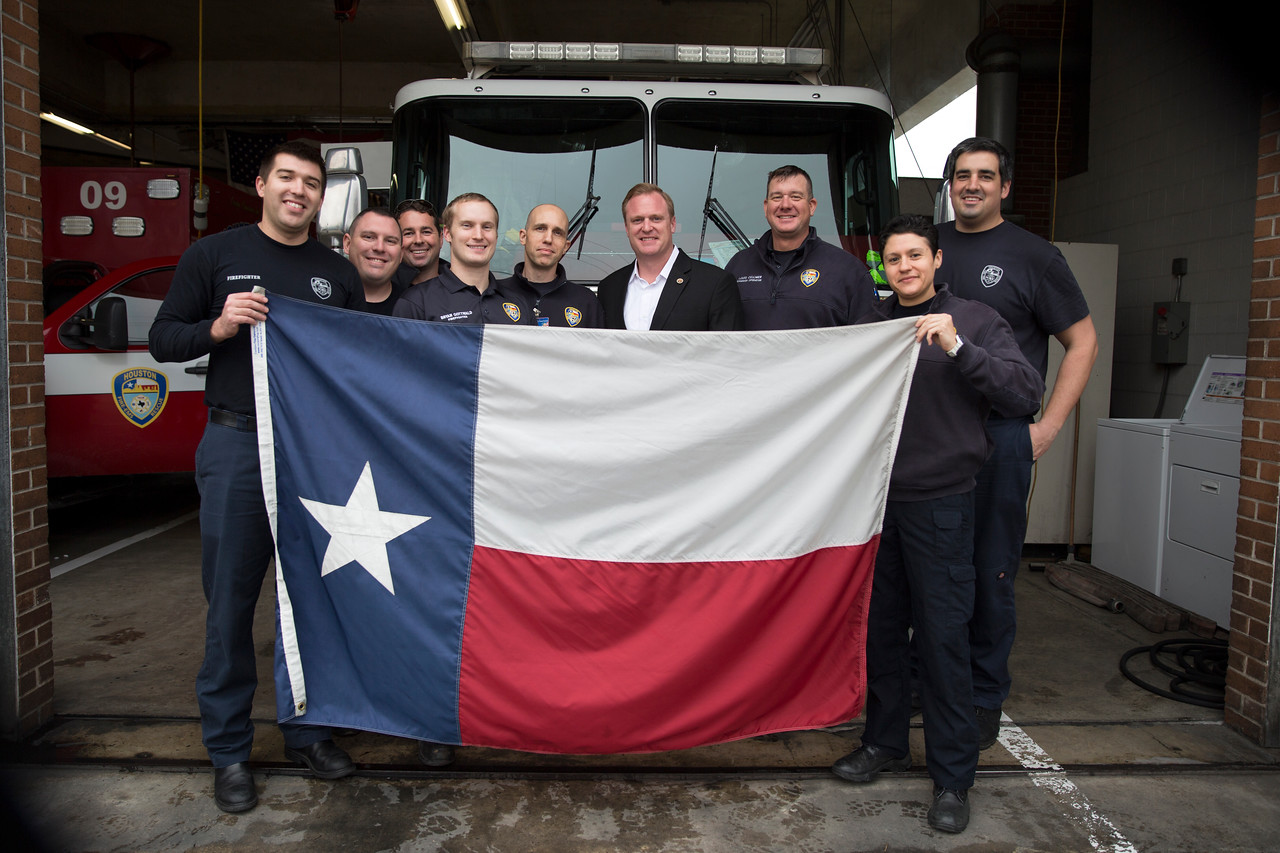
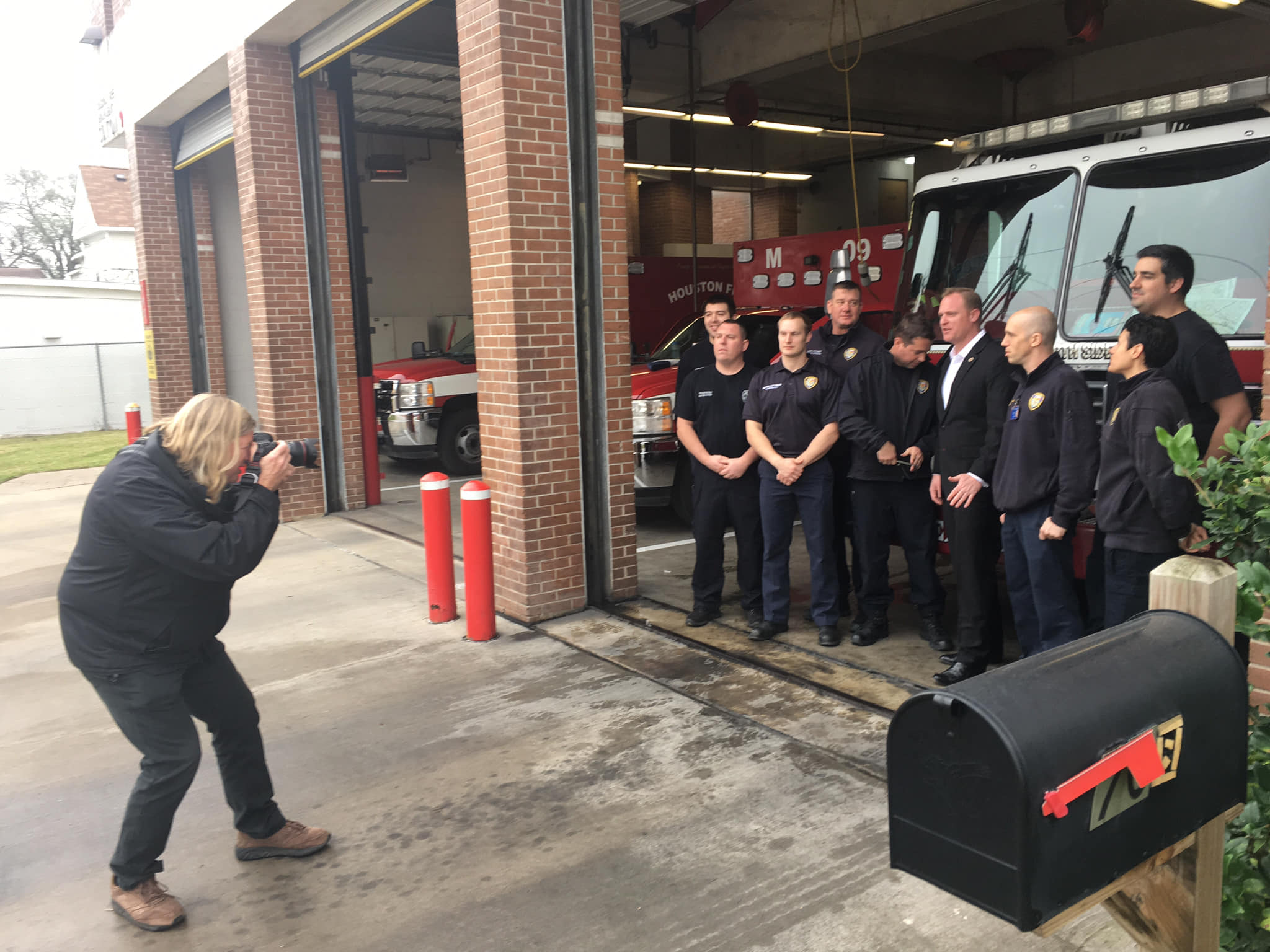





In January, photographer David Kidd and I spent three days in Houston for a profile story on the city’s mayor, Sylvester Turner. Turner first came on my radar in 2016, when he negotiated landmark pension reform for the city in remarkably quick fashion. Turner was less than a year into his term and he’d managed to achieve what previous administrations had failed to do.
Turner, who spent 27 years in the legislature prior to becoming mayor, clearly has some deal-making chops. That was the theme of the story and I saw it play out in various ways over my trip there. While I enjoyed the time I spent one-on-one with him, I think I got the most out of watching him interact with the council and the media. He doesn’t appear to be a man who’s easily ruffled, nor one who shows much emotion. But some folks clearly push his buttons.
In writing the story, I wanted to bring my reader in with details that were small but important. Things that help bring the story home and give people personality. I’ve been reading a lot of Chris Pavone, a spy novelist, who is really good at this. He definitely played an indirect role in the making of this story, which is on the cover of Governing’s March issue.
Last, we did a lot of driving around Houston (and yes, sitting in its infamous traffic) to get a feel for the fourth-largest city in the country. Not a lot of those impressions made their way into the final story so I’ll leave some of them here. I’ve seen abject poverty before many times, but it never ceases to hit my heart and weigh it down when I’m looking at it. Like every major city, Houston is one of haves and have-nots. But the vast canyon between the two categories seems so insurmountable, given the city’s unruly sprawl, lack of development control (ahem, zoning) and its political misalignment from lawmakers in the state’s capitol. Not surprisingly, many of these parts of the city still bear the marks of flood damage more than 17 months after Hurricane Harvey.
In our travels around this section of the city, we ran into some folks from a local religious organization who were rehabbing a couple houses for two octogenarians whose homes had been virtually destroyed. They were genuinely excited about their work and went on at length about the homeowners who’d been unable to live in their homes for more than a year. They were almost finished and expected to move the ladies back in by March. Thanks to their work, the two homes are a vast improvement over their condition even before the hurricane. It’s a reminder that there are no small deeds, especially when it comes to moving the needle on poverty.